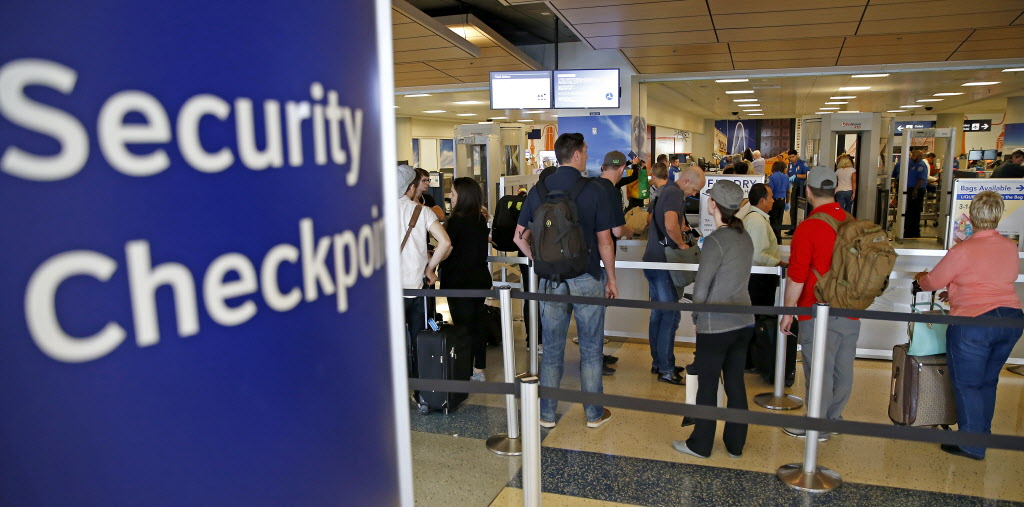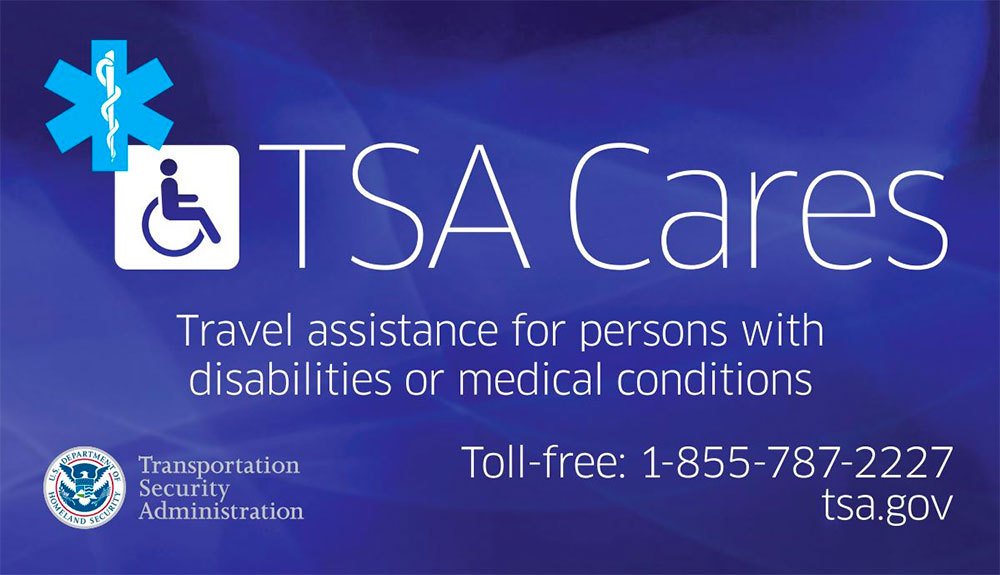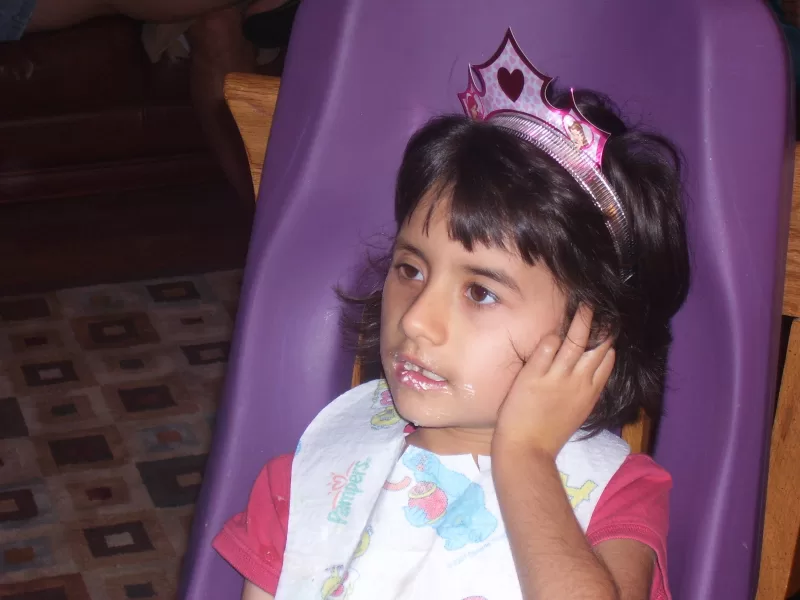Tips for flying with a loved one who has a disability.

I love to travel. For me, planning a trip is just as much fun as the trip. I love the decision making and anticipation that comes with a trip. I love the adventures with my family and the experiences we share. What I don’t love, is the stress that can come from traveling with a child with disabilities. Many parents who have children with disabilities tell me they don’t take vacations because it is “too much”. If you have a loved one with a disability; I am sure you understand what they mean. I explained in How I Learned to Relax While Traveling with My Disabled Child, planning makes a trip so much easier.
I will admit, flying with my daughter who has disabilities still creates some anxiety. I may never get over that because there are too many parts of flying that are out of my control. And, that could be more a “me” thing than a disability thing. In my case, we deal with health issues, cognitive issues, and mobility issues. The airlines have programs to help make the process easier, though they do not widely publicize them. Not all disabilities are the same, but here are some programs to think about before you book your next flight.
- Hidden Disabilities (Sunflower Program)- This program began in 2016 in the UK. People who have a disability and may need support can wear a lanyard with a sunflower on it. It tells airport personnel, discreetly, that you may need help or special considerations. Though anyone with a disability can use this program, it aims to help people whose disabilities that might not be apparent. This is a map of airports that adopted the program. They are working on expanding this program to hotels, museums, and attractions. Many families have said they used this in Orlando while traveling to Disney and it is easily recognized by airport employees.
The advantage of this program is that it is an easy way to get airport personnel attention without having to tell your story over and over. It’s stressful to explain your child’s needs to a busy employee. The sunflower cuts the need for that explanation out. You still may need to let them know what you need, but you don’t have to stand in the middle of an airport and explain your child’s medical history. If you have ever done this, then you understand the relief that comes with not having to do it again. This is most helpful to families that have “hidden disabilities”. When we arrive and my daughter is in a wheelchair with medical equipment attached to the chair, the need for assistance is apparent.

- TSA Cares- This program provides support for people with disabilities, medical conditions, or anyone needing help.They help people navigate the security screening process. If you are concerned for a loved one who might not react well to the security line or process, this is one way to help. You can request help online or call 72 hours before traveling 855.787.2227. I have heard from many parents who have said they needed to follow up multiple times to get a response and that the TSA wasn’t always ready for them. They have said, once they find someone to help, it is a great help. So, register ahead of time, keep a record of your registration, and be ready to look for a TSA agent once you arrive at the airport.
The advantage of this program isthey help with the screening process which can be overwhelming to many kids or adults with disabilities. If your loved one has trouble waiting in line or being in crowds, this is a big help. I have been told that they allow passengers to carry stuffed animals, wear headphone, and keep their shoes on during the screening process. That can be a big stress relief for families. If there is something else, you think would help your child through the process, just let the agent know.
- TSA PreCheck- This is a program you pay for avoiding the long lines at TSA security screening. You use a separate line and don’t have to remove items from your bags or take off your shoes. Once you have used it, you will have trouble going back to the regular line. My daughter is in a wheelchair, so we have never waited in the regular line when traveling with her. Airport personnel always set us to the TSA PreCheck or First-Class Priority check in lane. After a few flights, TSA PreCheck would show up on the tickets for our entire party. Clearly, someone flagged us and put it in the system. I do not know if that is normal. My daughter’s disability is very obvious, so this probably won’t work for most travelers with disabilities. We go through a different screening process because we carry medicine and liquids. They also can’t bring her wheelchair through the metal detector so they check her chair and they pat her down. Overwhelmingly it has gone well and TSA has been sensitive, considerate, and helpful. We always have problems in Houston, though. I try to pack my patience there, but it never helps.
The advantage of this program is not having to wait in a long line and not having to remove your shoes. It is a quicker and easier process which is why it is popular. Though I am hearing more stories of the PreCheck lines getting longer, they will always be shorter than the regular line. I have PreCheck for when I travel without my daughter. The process is simple. You fill out an application online, go to an interview and get fingerprinted, and pay $78. Once approved, it lasts for 5 years. If TSA cares is not an option, then paying for this is a good back up.
- Southwest Airlines Accessible Travel Assistance– the airline has a program where they have an employee to help you get to your gate, introduce you to the flight attendants, and answer questions you have. It is best to let them know when making your reservation so they can prepare. Their website has a lot of information specific to different disabilities. I have heard a lot of good things about Southwest’s program. I have never used it; we always fly Delta with our daughter because we have had great experiences and we know how they operate. Whatever airline you use, be sure to let them know you are traveling with someone who has a disability. I would also ask if they have any programs to help make travel easier.
- Prepare ahead of time- Many parents have said they “practice” with their child, so they know what to expect. I have seen this video referenced many times. I think it would be helpful for younger kids. This website also provides virtual tours of locations to help reduce anxiety for travelers. Check out this article on traveling with children with disabilities for more tips.
Other airport questions I have heard:
Do I need a doctor’s note for medicine in my carry on? No. Medicine should be in their prescription bottles to make things easier. If the medication is a liquid, you must tell TSA at screening. TSA rules say you can’t bring over 3.4 fl oz of medication in your carry on, but I have not found this to be the case.
What if I need to carry on a liquid? In our case, my daughter is g-tube fed and uses Ensure. We have always been able to carry bottles of Ensure through TSA. We have her food pump with us, so it helps explain why she needs it, but we always have to explain. It has never been a problem. They let us bring a bottle of water to flush her tube, as well.
Will they separate my child from me at TSA screening? My experience is that they won’t. One of our first times flying, an agent tried, and I told her that my daughter’s antiseizure medication needed to be given rectally if she had a seizure. She allowed me to stay with her. This is still a fear for me, even though I know they won’t separate us. I would leave the airport before allowing them to separate us.
All airlines have accommodations. You should check your airlines policy here. All airlines have a box you can check for assistance when you book your flight online. Always check it, even if you’re not sure what type of assistance you may need. This at least gives them advance notice that you need assistance. If you encounter any problems, contact the airline’s Complain Resolution Official (CRO). They are the airline’s expert on disabilities. Airlines are required to have a CRO available in-person or by phone during operating hours. My experience has shown me that preparation and research are essential. Give the airline the information they need to make your trip easy. Call them or have a virtual chat about questions you have. If you know how to handle these situations, it will help reduce everyone’s anxiety. And enjoy your trip!


